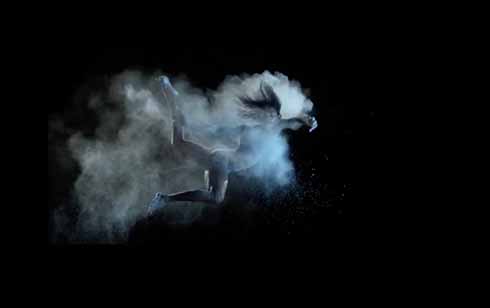 FIRESTARTER – THE STORY OF BANGARRA, Australia, 2020. Directed by Wayne Blair, Nel Minchin. 96 minutes. Rated M (Mature themes and coarse language)
FIRESTARTER – THE STORY OF BANGARRA, Australia, 2020. Directed by Wayne Blair, Nel Minchin. 96 minutes. Rated M (Mature themes and coarse language)
Firestarter was awarded best documentary film prize at the 2020 Australian Academy Awards. It is a documentary that should be seen. And it is been directed by celebrated actor-director, Wayne Blair, along with Nel Minchin, producer and director.
This is the story of the Bangarra Dance Company. We learn immediately that Bangarra means making fire, so the title of this documentary.
From Wikipedia: Bangarra Dance Theatre was founded in October 1989 by Carole J. Johnson, an African-American modern dancer and founder of the National Aboriginal and Islander Skills Development Association (NAISDA), Rob Bryant, a Gumbaynggirr man and graduate of NAISDA, and Cheryl Stone, a South African-born student at NAISDA.
Stephen Page became the artistic director in 1991, supported by two of his brothers, David, a talented musician and composer, and younger brother, Russell, an extraordinarily talented dancer. The film offers a great deal of David Page’s music and some extensive footage of Russell and his dancing.
Stephen Page is the strong presence in the film, going back over the decades of the company, the initial vision that he shared with his brothers and the variety of people who joined him in the enterprise and have stayed with the company over the years. The film takes us into the history of the Page family, the difficulties with their father and the influence of their mother. There were 12 children and the family lived in Mount Gravatt in Brisbane, went to the local schools, grew up in the 1960s and 1970s. There is an entertaining interlude where young David, a talented singer, won television contests, eventually getting a contract with Decca Records, and appearing with Paul Hogan on his television show.
A number of women joined the company and are interviewed throughout the film. They reminisce about the beginnings, and there are images of many of them and their dance performances throughout the 1990s.
The performances are a significant aspect of the film, especially those around the making of fire and fire starting.
However, the film doesn't shy away from the sadness and the difficulties of the family members. It acknowledges Russell's difficulties with substance abuse, his moods, and, after his enormous success, his suicide in 2002, aged 34. Stephen expresses the hope that it was some kind of accident. David so lively in his collaboration with Stephen, died in 2016, with the cause of death not revealed by the family. It was at this time that Stephen Page and the company received a Helpmann award – which he dedicated to his brothers. Russell Page’s son is one of the talking heads of the film and gives insights into his father. David was gay and, in 2008, Stephen directed him in a one-man show about his life.
Stephen Page’s son, Hunter, also appears with comment – and he also appeared in the production, Spear.
One of the great features of the film is the succession of excerpts from the prolific repertoire of the company from the early 1990s. With the Aboriginal themes, Stephen Page has provided a dance overview of indigenous culture, traditions, history, rituals, symbolism… This is evidenced in the variety of titles of the performances, Ochres, Fire, Skin, Boomerang, Corroboree, Walkabout, Bush, Bennelong (with favourable comments heard from Graeme Murphy, one of Australia’s great choreographers). The film also shows the tours by the company including overseas (and a photo opportunity with Prince Charles).
In 2005, Stephen Page directed a feature film, Spear, featuring his son and other company dancers along with actor, Aaron Pedersen. It is filled with the same dance interpretations of history and culture – but has the added beauty and aura of location photography.
After the death of David Page, Stephen was particularly upset, drove his company hard, but needed time away to come to terms with what it happened – and is able then to hand over the management of the company to his successor, Frances Rings, choreographer and dancer.
The Bangarra Dance Company is a major contribution to Australia’s consciousness of its Aboriginal heritage and traditions. In the film ends with a 2019 photo of the company, Stephen in front, a tribute to achievement.
Icon
Released 18 February
Peter Malone MSC is an associate Jesuit Media